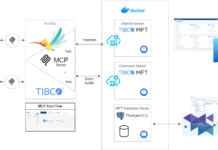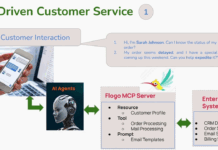
Businesses are always looking for a competitive advantage. It’s the nature of the beast, and really, the only way to move ahead of your peers. But where does this advantage come from? We live in a world of copycats, and your unique idea won’t be unique for very long. There’s technology, but pretty much everybody has access to the same technology. Often, what it really comes down to is how you can do something more efficiently than everyone else.
Enter DevOps.
What Is DevOps?
While the concept of DevOps has been around for a while, there’s some confusion over what it really means. When I see titles like “Director of DevOps” or “DevOps Manager,” it sounds like they’re describing an agility manager. DevOps is a concept, one that requires a cultural shift throughout an entire organization; it’s not a single person or group. It literally came from combining the words development and operations. It’s the overall idea of improving interactions between development and operations.
Why DevOps?
Technology and great ideas will only get you so far. Being able to do things more efficiently as a company, being able to innovate, and rapidly get your products and services to the market is where the advantage lies. In other words, using that same technology better than others. This is where your DevOps strategy comes into play. It gives you two things:
1. Agility: A good DevOps strategy means your company is able to turn on a dime. Most great ideas are only helpful if you can get them out fast enough (or copy them fast enough). Even being a little time ahead of the game can be invaluable.
2. IT alignment: When the business and IT are on the same page, it’s easier to get things done. IT should be seen as an integral part of the business, and not the necessary evil that some people see it as. IT should be a partner, not an antagonist
Making DevOps an integral part of your integration strategy can help you gain advantages that will put you ahead of the competition. Join us for an ActiveMatrix BusinessWorks 6.0 webinar on Tuesday, May 13, and see how you can make DevOps work for you.





